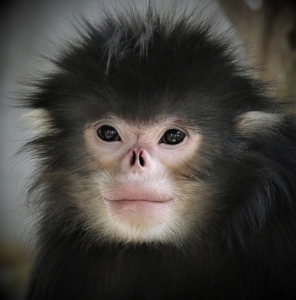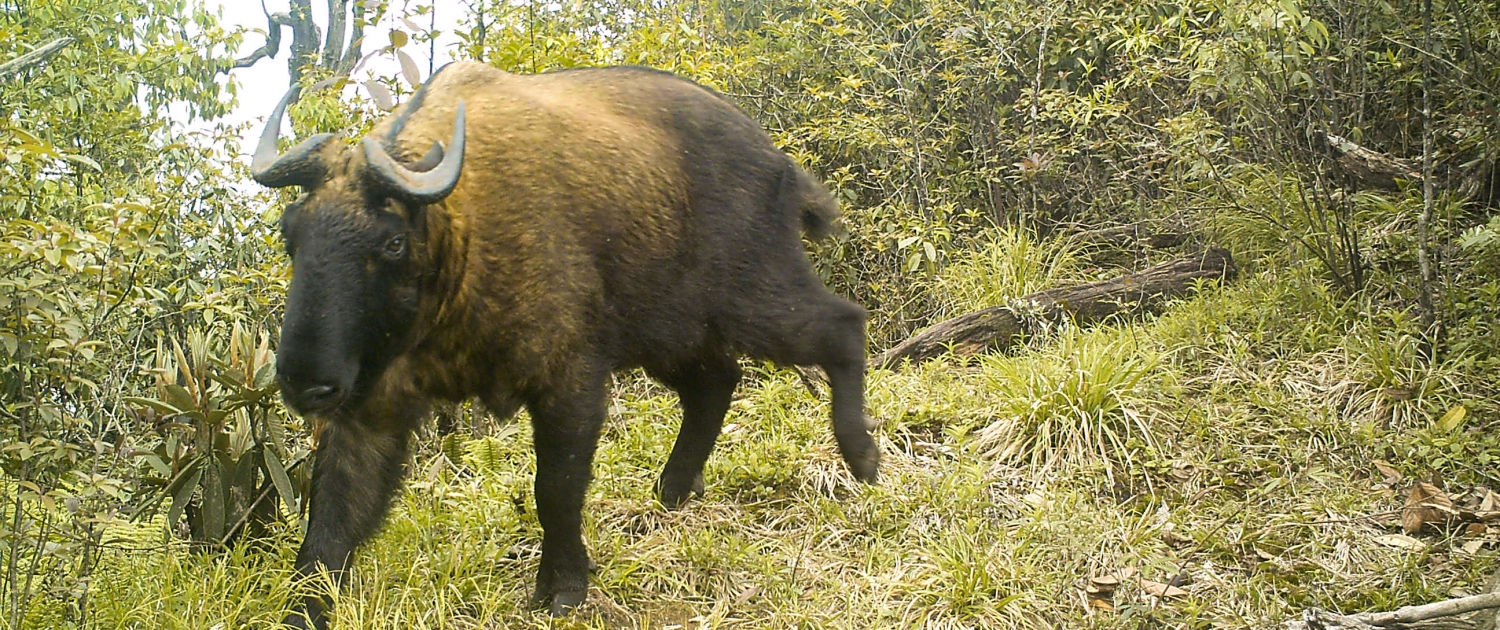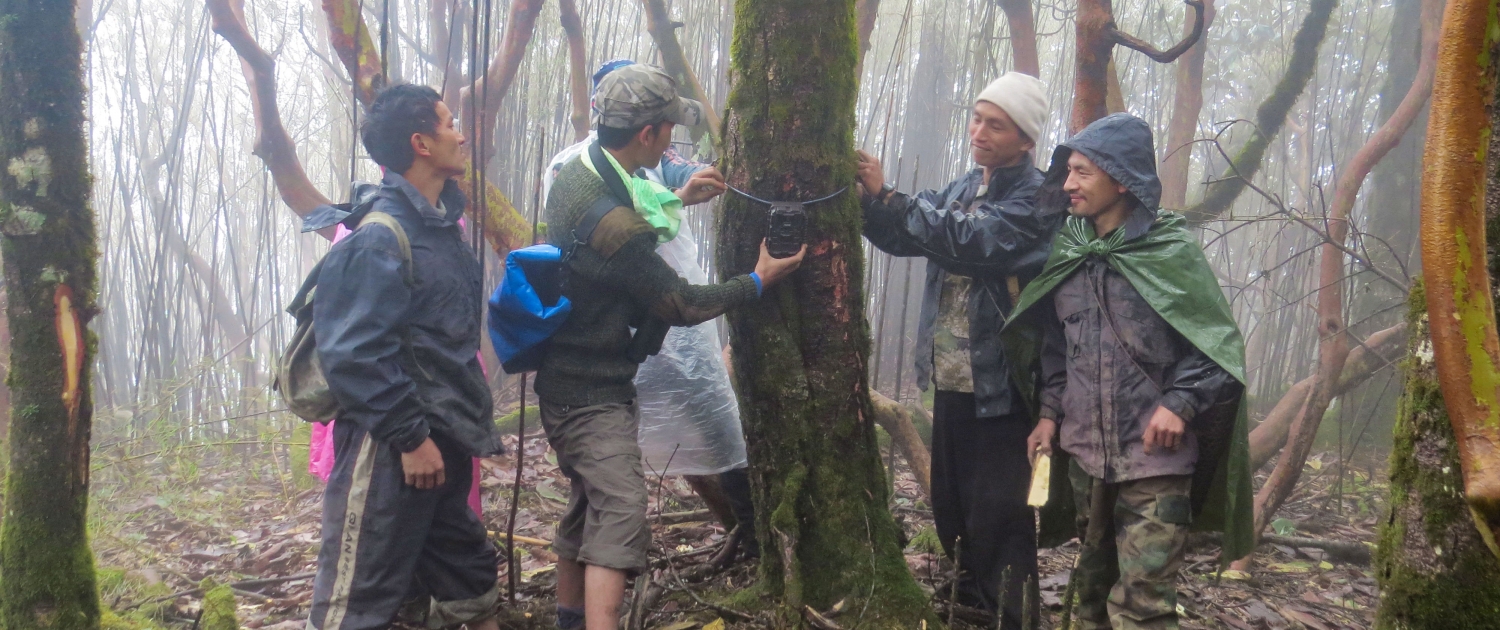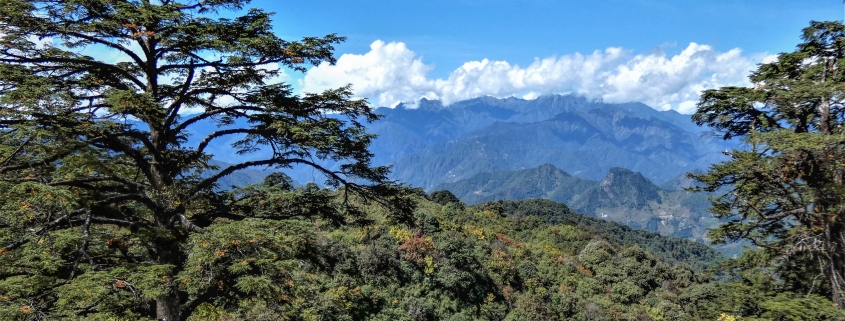New National Park Protects Critically Endangered Monkey in Myanmar
The Myanmar Snub-nosed Monkey, a rare primate species native to the eastern Himalayas in Myanmar, sneezes in the rain.
That characteristic is said to be due to its upturned nose, a feature distinctive to all five species of snub-nosed monkeys. All five of these species are endemic to Southeast Asia in the mountainous regions near the intersections of Myanmar, Vietnam and southern China. Yet the Myanmar Snub-nosed Monkey, despite the charming quirk of their weather-derived nasal fits, is under immense threat of extinction from habitat loss and poaching. That’s why Rainforest Trust teamed up with Fauna and Flora International (FFI) to protect habitat in northern Myanmar for the species.

The Critically Endangered Myanmar Snub-nosed Monkey. Photo by Frank Momberg/FFI.
The Myanmar Snub-nosed Monkey was first discovered only ten years ago by a research team led by FFI scientists. But it didn’t take long for the conservation world to determine that the species was threatened with extinction. Soon after its discovery, the species was ranked as “Critically Endangered” by the International Union for Conservation of Nature (IUCN). This shouldn’t have been much of a surprise for those familiar with snub-nosed monkeys — of the other four species, IUCN lists one as “Critically Endangered” and three as “Endangered.”
Scientists believe that only around 330 individual Myanmar Snub-nosed Monkeys remain in the wild, isolated to a small corner of Myanmar. And that number is at risk of dropping even further. Habitat loss, especially from logging and road-building, threatens their forest homes. Since the species lives only in a small region of the eastern Himalayas, any forest destruction in this area is a major blow to the entire species.
But just recently, the government of Myanmar created Imawbum National Park, a 386,176-acre stretch of habitat now officially protected along the border with China. This site covers essentially the entire Myanmar Snub-nosed Monkey range and safeguards the core of their habitat.
The park also provides protection for a rare cross-section of Southeast Asian wildlife. Another local resident is the Endangered Red Panda, a small mammal related to raccoons and weasels native to this region. The Endangered Shortridge’s Langur is another threatened primate species endemic to these forests. Other resident mammals include two Critically Endangered pangolin species — the Chinese and the Sunda Pangolins — as well as the Bengal Slow Loris, Asiatic Black Bear, Sun Bear, Takin, Eastern Hoolock Gibbon, Northern Pig-tailed Macaque, Stump-tailed Macaque and the northern species of Clouded Leopard, all of which IUCN ranks as “Vulnerable” to extinction.

A Takin, captured by a camera trap in the area. Photo courtesy of FFI.
“This new national park will protect one of the last intact forests with this assemblage of species in Southeast Asia,” said Mark Gruin, Rainforest Trust’s VP, Strategic Initiatives. “We’re thrilled that this unique ecosystem, and its vast biodiversity, including such unique and enchanting creatures as the Myanmar Snub-nosed Monkey, will now be protected.”
Imawbum National Park will have a collaborative management strategy with patrolling, law enforcement, species conservation interventions, protected area infrastructure and awareness programs. Long-term protection efforts will emphasize community integration, making local people stakeholders in conservation efforts.

A team puts up a camera trap in Imawbum, part of monitoring efforts. Photo courtesy of FFI.
“The designation of the area is just the first step. It is now imperative that the necessary resources are directed towards the area so we can ensure the long-term survival of the snub-nosed monkey and all of the endangered species that call this forest home,” said Mark Grindley, Country Director of Fauna & Flora International’s Myanmar Program.
By protecting this wide swath of forest, Rainforest Trust and FFI have ensured that the Myanmar Snub-nosed Monkey and other local wildlife will have a place to thrive in northern Myanmar. So the next time it rains, these monkeys can finally sneeze in peace.
This protected area was established thanks in part to your support of our work and the Conservation Action Fund. A special thanks to Leslie Santos and Brett Byers, and Luanne Lemmer and Eric Veach for their leadership gifts to this project. All gifts matched by the SAVES Challenge.
Header Photo: A view of Imawbum, in northern Myanmar. Photo by Frank Momberg/FFI.






